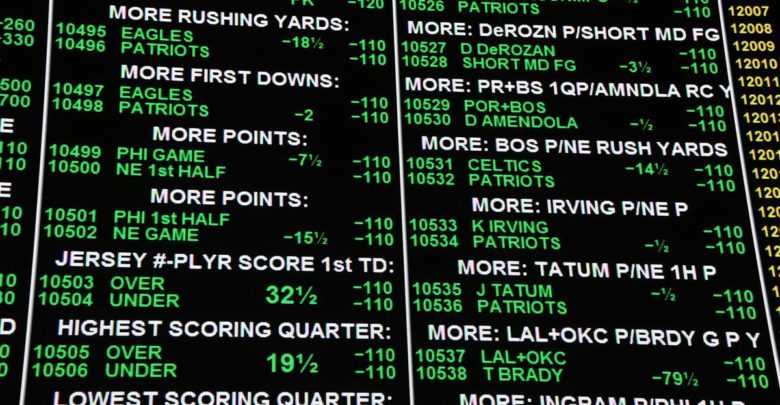A Sports Betting Draft Could Determine What Vermont’s Sports Betting Market Could Look Like

Another New England state may be on the radar for the sports betting industry. The initial proposal would permit mobile sports wagering to take place across Vermont.
Could Sports Betting Be a Possibility in the Green Mountain State
If the Vermont sports betting market launches, it would be regulated by the Board of Liquor and Lottery. Although the legislation hasn’t been filed yet, the language states that it would allow up to six mobile sports betting operators.
Like other jurisdictions in the industry, the bookmakers that wish to conduct business in the state would have to go through a bidding process to receive an approved license. Applicants would determine their own tax rates.
The language in the bill seems to be very similar to neighboring state New Hampshire. Experts believe that New Hampshire’s bill and the market could offer clues as to what the Vermont market could entail.
In New Hampshire, DraftKings Sportsbook became the sole operator of the state in exchange for 51 percent of the operator’s gross revenue. I wouldn’t be surprised if the Granite State added another bookmaker eventually.
Sports 603 will eventually take control of the lottery, but the sportsbook will need to establish a partnership to move on to the next stage. Looking at the potential bill, Vermont would only allow mobile sports betting to take place. If this is the case, Vermont would be only the third state to only offer mobile sports gambling behind Tennessee and Wyoming.
The bill may be drafted by April 2nd, but the bill number has yet to be filed. The legislation will adjourn on May 20th, but a bill is unlikely to go any further in this session.
Most of Vermont’s Neighboring States Offer Sports Betting
Vermont is only one of two states that don’t have a legalized sports market in the New England region. Maine just signed sports betting into law, joining Rhode Island and Connecticut.
Massachusetts lawmakers have been discussing sports betting since 2018 but can’t seem to reach a deal at the moment. The reason is the House, and the Senate passed two separate bills that have major differences. The two chambers will most likely have to push for a compromise soon.
New Hampshire is one of the states that have a tax rate slated at over 50 percent for its bookmakers. Other jurisdictions that have similar tax rates include Arkansas, Delaware, New York, and Rhode Island.
According to the writing, Vermont’s sports betting market is expected to generate anywhere between $640,000 to $4.8 million in tax dollars during its first year and $1.3 million to $10.8 million, depending on what path the General Assembly chooses.
Could There Be any Restrictions When the Market Launches
Currently, it’s uncertain what the market will entail when it does launch. Some of the key terms highlighted in the bill could change how much tax dollars the state could generate.
Bettors are required to be at least 18 years of age, and betting on in-state collegiate programs could be prohibited. Each sportsbook operator that wants to enter the state must have a responsible gaming game plan.
Operators will most likely be subject to pay a one-time licensing fee of $50,000 and an annual $20,000 fee to be renewed. An annual operational fee would cost $100,000, but the bill doesn’t outline what the payment would cover.
To qualify for a bid, a prospective operator must indicate how quickly it can bring a platform to market and how many skins, or platforms, it plans to use. The sports betting revenue the state collects would be directed to a general fund.
